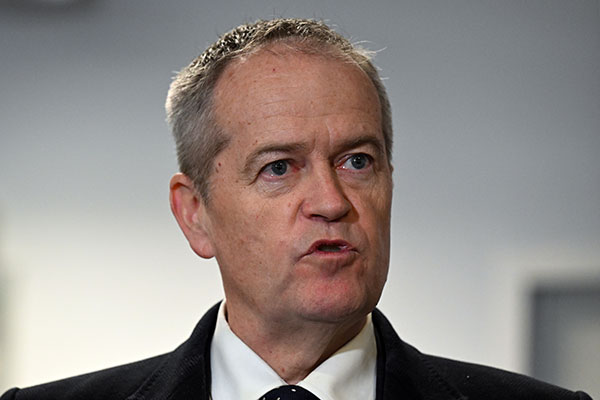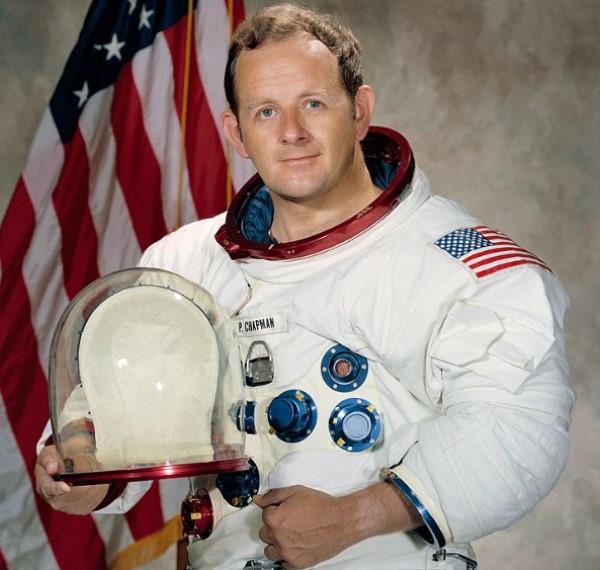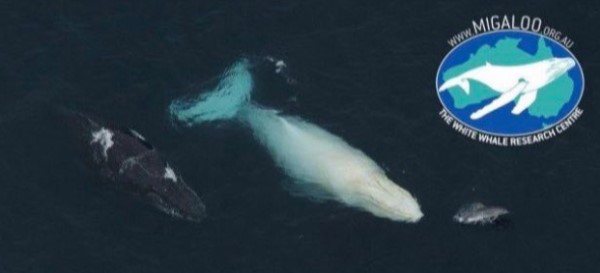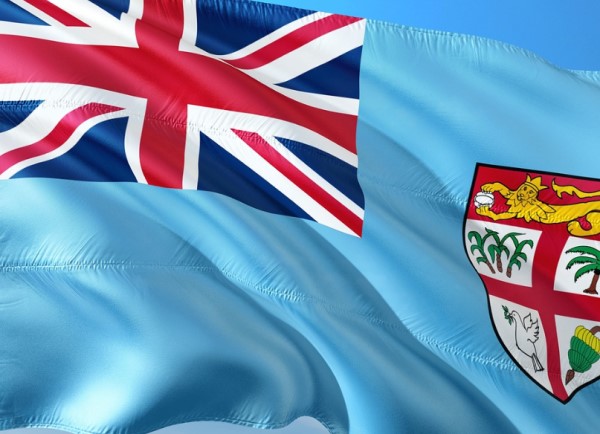Selected
- Details
- Written by Grant Broadcasters
- Category: Selected
- Hits: 218

The chief medical officer has issued a fresh warning about the increase in COVID-19 cases across the country, saying the death toll from the virus is likely to rise.
Ahead of the government reintroducing the pandemic leave payments, Professor Paul Kelly has urged eligible Australians to get a third or fourth COVID vaccine, ahead of the predicted peak of the third Omicron wave.
Prof Kelly said the latest rise in cases was set to place additional pressure on hospitals.
"Due to the number of cases, we may also see a rise in the number of people dying with COVID-19, particularly among those who are at higher risk of severe disease," he said.
"We cannot stop this wave of infections, but we can slow the spread and protect the vulnerable. We have done this before and we can do it again."
The chief medical officer has also urged employers to review health and safety risks in light of the increase in infections, as well as allowing employees to work from home if possible.
Health Minister Mark Butler said the third Omicron wave was concerning.
"There were 300,000 cases or thereabouts reported over the last seven days, and I think (the chief medical officer) and I are pretty confident that the real number is likely to be double that," he told reporters in Canberra.
"The other difference obviously between the situation we confront today and in January is that hospitals are also grappling with flu and a range of other respiratory illnesses and the usual surge in hospital activity that we see during winter."
Since the eligibility widened for a fourth vaccine dose, more than 560,000 have been administered in the first week of the expanded rollout, with most being between 50 and 65-years-old.
That's compared with 180,000 doses of a second booster the week before.
However, Mr Butler wanted a greater take up of a third dose, with just 50,000 first boosters administered in the past week.
It comes as pandemic isolation payments for eligible workers will resume from Wednesday until September 30.
However, Government Services Minister Bill Shorten said employees would have to show they were not able to financially cover the impact of being off work in order to be eligible for the $750 payment.
"If you have sick leave, you have to use your sick leave first but I stress, not your holiday leave," Mr Shorten told the Seven Network's Sunrise program on Tuesday.
"Also, if you have more than $10,000 in the bank ... so it's not a means test but if you've got liquid assets, then you are not eligible."
More than 50,500 new cases and 75 deaths have been recorded nationwide on Tuesday.
There are more than 348,000 active coronavirus cases Australia-wide, with more than 5200 patients in hospital care.
LATEST 24-HOUR COVID-19 DATA:
NSW: 13,554 cases, 26 deaths, 2205 in hospital with 60 in ICU
Victoria: 12,201 cases, 25 deaths, 897 in hospital with 34 in ICU
Northern Territory: 671 cases, no deaths, 63 in hospital with one in ICU
Queensland: 9992, 18 deaths, 983 in hospital with 24 in ICU
ACT: 1221 cases, no deaths, 170 in hospital with six in ICU
WA: 6815 cases, three deaths, 455 in hospital with 20 in ICU
SA: 4172 cases, three deaths, 282 in hospital with 11 in ICU
Tasmania: 1642 cases, no deaths, 184 in hospital, two in ICU.
© AAP 2022
Photo: Federal Minister for the National Disability Insurance Scheme Bill Shorten (AAP Image/Mick Tsikas)
- Details
- Written by Grant Broadcasters
- Category: Selected
- Hits: 260

Nearly 50 years after his mission into space was aborted and a year after his death, Australian-born astronaut Phillip K Chapman is to finally fulfil his life's ambition.
Some of his ashes, sealed in a little capsule, will be taken on a memorial flight into orbit where they will briefly experience space's weightlessness before returning safely to earth.
The flight is scheduled for November 30 this year.
Mr Chapman will then be flown again on a permanent deep space mission.
His wife Marie Tseng says she is pleased he is finally getting to live out his boyhood dream of getting off "this little rock" and exploring the vastness of space.
"He was an adventurer and was committed to supporting commercial space businesses so the Celestis flights resonated well with his life goals and personality," Ms Tseng said.
"He would be sorry that his living self will not be flying because he would want to conduct scientific experiments and revel in the experience.
"The joyful and exciting Celestis flights are wonderful ways for us, the survivors, to commemorate Phil."
Born in Melbourne in 1935, Mr Chapman spoke of his intergalactic dreams from the age of 12 and dedicated his life to advancing space exploration and civilisation.
He trained as a pilot in the Royal Australian Air Force before joining the Australian National Antarctic Research Expeditions for a winter on the frozen continent to experience living in isolated and difficult terrain.
Eager to get to the US, which had the only space program in the 1960s, he joined MIT's Experimental Astronomy Lab and in 1967 became the NASA's first foreign-born scientist-astronaut.
He was mission scientist for Apollo 14 - one of the six that landed humans on the moon - and claimed to be the man behind the televised 'feather and hammer' experiment, where moon walkers tested the three centuries-old Galileo Galilei theory that all objects fall with equal speed in a vacuum.
Mr Chapman himself was slated to rocket into space in 1975 as part of the SkyLab B mission but in 1972 it was aborted, with then-president Richard Nixon deciding not to put more money into such projects.
"The Skylab in which I had hoped to live is now a tourist attraction.
"I sometimes visit it when I am in Washington but it is very sad to see it wasted," he would tell author Colin Burgess for his 2019 book Shattered Dreams: The Lost and Canceled Space Missions.
Mr Chapman resigned from NASA later that year but never gave up on his passion.
An early space settlement pioneer, he continued to work in the field, developing the private sector commercial space industry, significant especially as it is that industry now enabling his life's ambition to be realised with this posthumous space flight.
"We are honoured to provide Dr Chapman with his 'first' launch to space," said Charles M Chafer, co-founder and CEO of Celestis, Inc, the memorial spaceflight service.
"His legacy as a scientist, astronaut and business leader is reflected in his family's choice to honour him with a final journey among the stars."
Image: Wikipedia images
- Details
- Written by Grant Broadcasters
- Category: Selected
- Hits: 233

A white whale has washed up dead on a beach in Victoria's east, sparking fears it may be famous humpback Migaloo.
The albino carcass was found at a Mallacoota beach in the state's East Gippsland region and is only accessible by water.
Wildlife scientists are working to determine if the dead whale is Migaloo but have not confirmed it is him.
"We are currently getting more photos and videos to help us better understand more about this individual," Macquarie University wildlife scientist Dr Vanessa Pirotta wrote on social media.
"This animal could have passed some time ago and been weathering. This may have caused the skin to come off. Alternatively, this could be another white whale."
The famous white humpback was first sighted in 1991 off Byron Bay, when he was believed to be between three and five years old.
He was dubbed Migaloo, an indigenous word for white person.
Its been two years since the albino whale was last spotted after losing his tracking chip.
Victoria's Department of Environment, Land, Water and Planning has been contacted for comment.
Image: migaloo.com.au
- Details
- Written by Grant Broadcasters
- Category: Selected
- Hits: 206

Fiji finds itself at the centre of global attention.
The Pacific nation of 900,000 people spanning 330 islands faces an election later this year, the result of which will be closely watched.
Last week it hosted the Pacific Islands Forum which attracted the gaze both of US Vice President Kamala Harris and senior Chinese officials, as the two global powers jostle for influence in the region.
Fiji is also being monitored by governments, business and global agencies for signs of what is being described as "economic scarring" following the COVID-19 pandemic.
The practical impact of this, says Foreign Minister Penny Wong, is countries like Fiji potentially heading down a "lower development path" - something no Pacific nation can afford.
"We need to work with them," she said last week.
Australia is playing a key role in helping Fiji to avoid this economic scarring and its associated fallout.
The Australian government's Fiji development program last year had a budget of $147 million and it is the Pacific nation's largest public health partner.
It provided $83.5 million in direct budget support for the Fijian government, which during the pandemic enabled the country to keep up spending on health and social welfare, strengthen its fiscal position and debt profile, and better position its economy for recovery.
This meant such programs as Fiji's disability allowance and benefit payments for the poor could continue.
It was an important step in rebuilding trust with Fiji, which in the past has seen its share of government instability, poor governance and corruption.
Support for tourism - the country's largest revenue earner - has also been forthcoming, with Aussies voting with their feet and returning to the island nation's resorts in huge numbers.
For the first six months of 2022, Fiji received 205,529 visitors, showing a 50 per cent recovery of arrivals over the same period in 2019.
Exporters of food are also being assisted through an Australian-funded market development facility.
The Fijian government now estimates economic growth of 12.4 per cent this year but officials say it will take three years to restore the economy to pre-pandemic levels.
Education is another major area of co-operation.
Through Australia's $25 million Fiji education program, support is being provided for teacher preparation and development, inclusive education and civil service reforms in the sector.
With schools closed since April 2021 due to COVID, resources were pivoted to respond to remote learning requirements including the development of radio tuition.
Major facilities such as the Blackrock camp and new Maritime Essential Services Centre in Lami - due for completion in 2024 - will not only create jobs but boost Fiji's leadership in responding to natural disasters, protect local fishing and increase naval and coastal rescue capabilities.
Last week's $US1.6 billion acquisition of Digicel Pacific by Telstra, backed by government funding, is also considered critical to the region's growth and security.
However the country is not without its challenges.
Save the Children has been working in Fiji since 1972, with projects in 80 communities across 10 districts.
CEO Mat Tinkler says while Fiji is one of the most developed economies in the Pacific there are a number of difficulties.
Continuity and quality of education delivery is one.
And there are still "significant challenges" with under-nutrition and malnutrition, he says.
As well, children are exposed to a high level of violence in the home - a situation exacerbated by the pandemic as parents lost incomes and many students the protective environment schools provided.
"Many of the vulnerabililties were amplified by COVID," Mr Tinkler told AAP.
He says a cash transfer program was particularly well received by women who lost their jobs.
"All of them said to me (the payments) were life-changing and that if they didn't have that money they would have been struggling to survive."
He says the new government in Australia is "leaning into its role" in the Pacific, with Prime Minister Anthony Albanese last week attending his first Pacific Islands Forum leaders' summit in Suva and a flurry of ministers making a path through the region since the federal election.
There are a number of unknowns ahead for Fiji.
The looming election pits two former coup leaders against each other - current prime minister Frank Bainimarama and Sitiveni Rabuka.
There is the strategic challenge as China takes a closer interest in the region while the Biden administration seeks to boost the scale of US investment and activity.
And there is the existential threat of climate change, with well over 600 villages at risk of flooding due to rising sea levels, cyclones becoming more devastating and frequent, salt water ruining farmland and an increase in pests and diseases.
But what is certain is Australia will maintain a close eye on what is a vital piece of the Pacific puzzle.
Image: Pixabay
Page 20 of 191